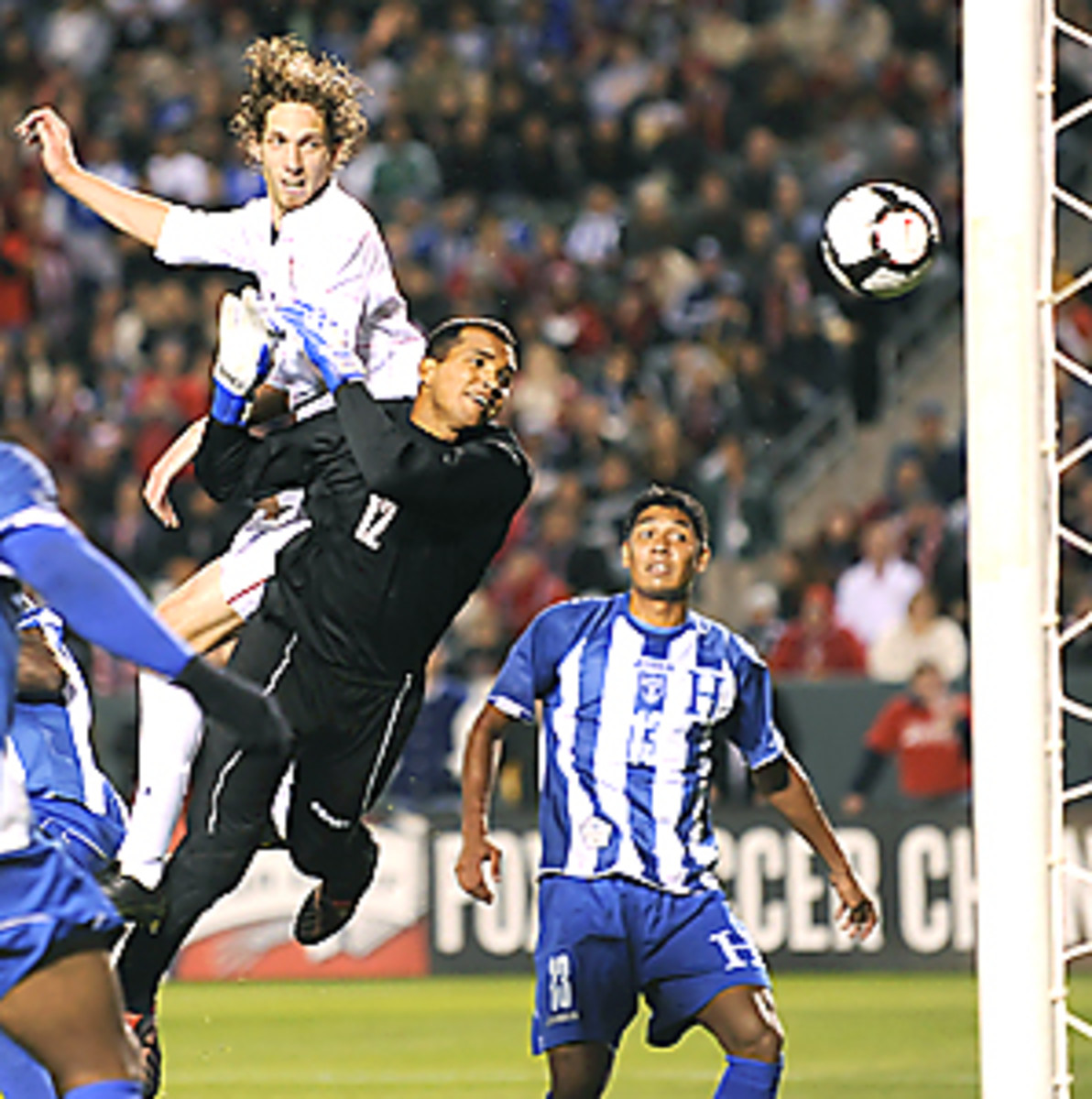Shorthanded or not, U.S. squad has long way to go before World Cup
Sorting through that mess in search of positives hardly seems worth the effort. But as Bradley reviews the tape of the game later, he might draw a drop of enthusiasm from an unlikely source: The play of Jonathan Bornstein. Forced to move from left back to center back after Conrad's exit, Bornstein handled the adjustment as well as anyone could have expected. He didn't shine or change the course of game, but he filled in admirably. Given Bornstein's reputation as a better player going forward than marking, it has to rate as a plus for the U.S., albeit a small one. "I played in the center last season for Chivas [USA] but that was my first time with the national team," Bornstein said. "I haven't trained there in a while, but it was kinda familiar and it all kinda came back to me. It was what we had to do. Jimmy gets a red and you have to slide around. You have to change on the fly."
It was fitting that Bornstein had a solid game against Honduras, a country in which he has become a hero. His header against Costa Rica last October on the final day of World Cup qualifying tied the game and stamped Honduras through to South Africa. Honduras jerseys with "Bornstein" on the back dotted the crowd, and he was the only U.S. player cheered loudly during introductions. He has been popular with the Honduran press, and fans asked him to pose for pictures as he left practices this week. He added to the fervor by putting the shoes he wore in the game against Costa Rica up for auction on eBay (high bid as of Saturday night: $1,425 as), with the proceeds going to the American Red Cross.
Honduran fans may adore him, but U.S. supporters have long had a love-hate relationship with Bornstein, reflective of his up-and-down play with the national team. His performance Saturday isn't likely to change that, but it might cause the bulk of their concern to shift elsewhere.
One of the goals of the January camp was to identify who among the trio of center backs -- Conrad, Chad Marshall or Clarence Goodson -- might be able to step in as a starter or be a key reserve, should the U.S. head to South Africa without the services of Oguchi Onyewu, who is recovering from a knee injury, or Jay DeMerit, who is back with Watford but whose durability is in question.
Conrad may not have deserved two yellow cards in the game's first 17 minutes, but he needed to play smarter, particularly in giving up the penalty kick that got him sent off and put the U.S. down a goal. Marshall lost Jerry Palacios on his header in the 37th minute that made it 2-0. Goodson accounted for the American's lone goal, heading home a corner kick from Brad Davis in the 70th minute, but Bradley is sure to look closely at the line kept on Roger Espinoza's scoring strike in the 53rd minute.
"Speaking for Jimmy, he has played in the World Cup and is a player we chose to be the captain; and I know he feels bad about getting caught in that situation because it put a team in a tough spot," Bradley says.
The disarray caused by Conrad's exit undoubtedly contributed to the center back's struggles. For a spell the team played midfielder Robbie Rogers at left back, which had been tried before only in practice, and then brought in Heath Pearce in the second half, leaving Bornstein in the middle. "You take into account how your shape changes when you are a man down, but I still think that at times we maintained that defensive block that [Bradley] talks about being important," Bornstein said. "It's tough say right after the game who didn't and didn't play well. I think we covered for each other and did a few positives things, but until you watch the tape you don't really know."





